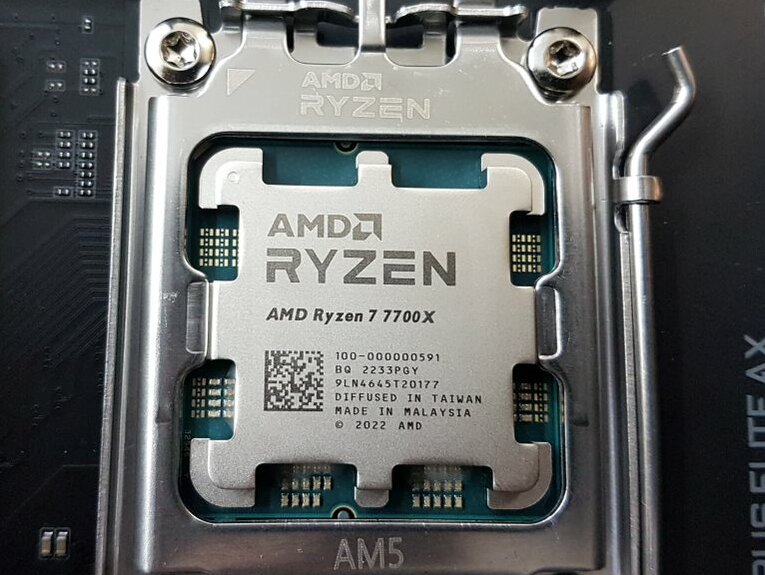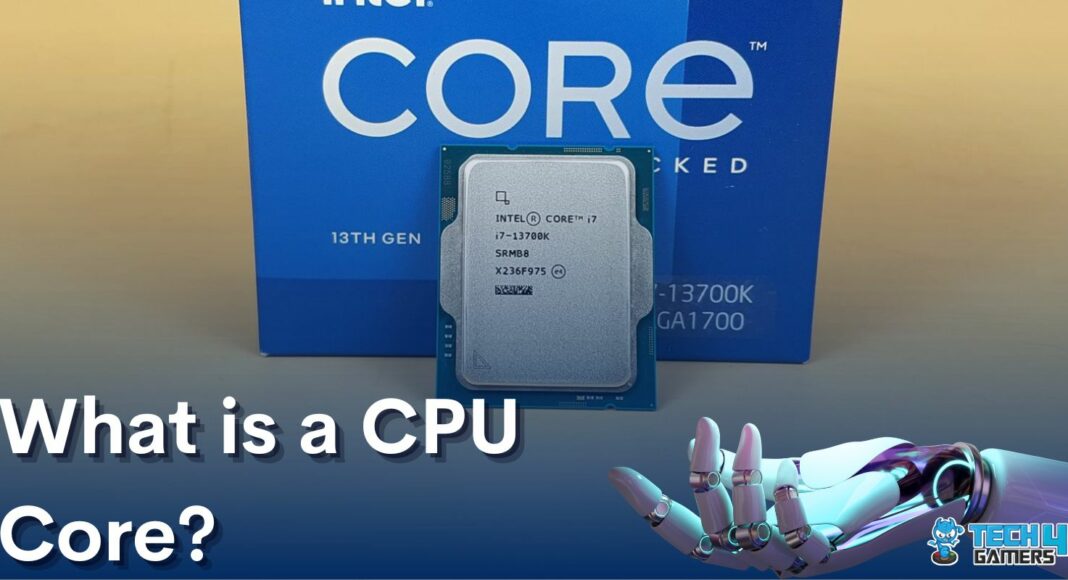CPUs are an important part of modern computation requirements that include but are not limited to gaming, content creation, and other compute-intensive tasks. Within CPUs, the concept of CPU cores plays a crucial role in determining the performance and efficiency of these processors, which we will explore in this article.
Key Takeaways
- A CPU core is a component within a CPU (Central Processing Unit) that performs the actual processing of instructions in a computer.
- The number of CPU cores directly affects performance by enabling parallel processing for multitasking, but it also raises heat and power consumption.
- For gaming, a CPU with six or more cores is usually enough, but more cores may be needed for demanding games or higher resolutions.
What is a CPU Core?

A CPU core is an individual processing unit within a CPU that can execute instructions independently[1]. It can be thought of as a separate brain within the CPU that can perform tasks. A CPU with multiple cores can execute instructions in parallel, allowing for more efficient multitasking and increased performance[2].
Traditionally, CPUs had a single core, meaning they could execute one instruction at a time. However, with technological advancements, CPUs commonly have multiple cores, ranging from 4 to 24 and even higher. These cores can work together to perform tasks more quickly and efficiently, improving overall performance.
How Do CPU Cores Affect Performance?
The number of CPU cores directly affects the performance of a processor. With more cores, a CPU can handle multiple tasks simultaneously, increasing performance in multitasking scenarios[3]. Each core can execute its own set of instructions, independently fetching and processing data, allowing for parallel computing tasks[4].
For example, when running multiple applications simultaneously, a multi-core CPU distributes the workload among its cores, resulting in smoother performance and reduced lag. Do remember that using more cores will generate more heat and require more power[5]. It is important to ensure proper power delivery and CPU cooling while using additional cores.
CPU Cores Vs Threads
A thread is a sequence of instructions that can be dispatched by a CPU core for execution. Each application generates its own threads and independent streams of instructions that can be executed concurrently[6]. Meanwhile, the CPU cores are the individual processing units that process these threads. A CPU Core can handle multiple threads if it supports hyper-threading, allowing it to work on multiple tasks simultaneously.
Hyper-Threading is a technology introduced by Intel that allows a single CPU core to execute multiple threads concurrently, simulating the effect of having more cores[7]. AMD has a similar technology called Simultaneous Multithreading (SMT)[8]. This means that a CPU with hyper-threading or SMT can handle more threads than its core count, improving performance in certain scenarios.
How Many CPU Cores Are Required for Gaming?

Generally, a CPU with six or more cores is sufficient for most entry-level games. However, an 8-core or higher CPU may be recommended for more demanding games or higher resolutions to ensure smooth performance and avoid bottlenecking.[9]. For instance, Warzone 2 can use up to eight cores due to its multi-threading ability.
It’s also important to note that the performance of a CPU in gaming also depends on its clock speed, cache size, and other factors. Having more cores doesn’t guarantee better gaming performance if other aspects of the CPU are not optimized.
Related Helpful Resources By Tech4Gamers:
References:
- What are CPU cores?. Lenovo. Retrieved from https://www.lenovo.com/us/en/glossary/cpu-core/?
- What are Threads? What are Cores? and Threads vs Cores. Retrieved from https://forum.huawei.com/enterprise/en/What-are-Threads-What-are-Cores-and-Threads-vs-Cores/thread
- Christopher Trick (Jul 18, 2022). How Many Cores are Enough?. Retrieved from https://www.trentonsystems.com/en-us/resource-hub/blog/how-many-cores-are-enough
- Parallel Computing. Saylor.org. Retrieved from https://learn.saylor.org/mod/page/view.php?id=27133
- Dual-Core vs. Quad-Core CPU: What’s the Difference. Retrieved from https://phoenixnap.com/kb/dual-core-vs-quad-core
- Ali Rashid Khan (April 18, 2023). CPU Threads: All You Should Know. Retrieved from https://tech4gamers.com/cpu-threads/
- What Is Hyper-Threading?. Retrieved from https://www.intel.com/content/www/us/en/gaming/resources/hyper-threading.html
- Simultaneous multithreading. Retrieved from https://www.ibm.com/docs/ru/sdse/6.4.0?topic=planning-simultaneous-multithreading
- CPU vs. RAM: Which is More Important for You?. Retrieved from https://www.cdw.com/content/cdw/en/articles/hardware/cpu-versus-ram-which-more-important-you.html
FAQs
It depends on the specific model of your CPU. You can check the number of cores in your CPU by using a system information tool or looking up its specifications online.
No, you cannot overclock individual CPU cores. Overclocking is typically applied to all cores uniformly, as they are part of the same CPU.
While, in general, CPUs with more cores show better performance, all applications may not be able to benefit from more cores. Specific use cases are advised to be considered.
Thank you! Please share your positive feedback. 🔋
How could we improve this post? Please Help us. 😔
[Wiki Editor]
Ali Rashid Khan is an avid gamer, hardware enthusiast, photographer, and devoted litterateur with a period of experience spanning more than 14 years. Sporting a specialization with regards to the latest tech in flagship phones, gaming laptops, and top-of-the-line PCs, Ali is known for consistently presenting the most detailed objective perspective on all types of gaming products, ranging from the Best Motherboards, CPU Coolers, RAM kits, GPUs, and PSUs amongst numerous other peripherals. When he’s not busy writing, you’ll find Ali meddling with mechanical keyboards, indulging in vehicular racing, or professionally competing worldwide with fellow mind-sport athletes in Scrabble. Currently speaking, Ali’s about to complete his Bachelor’s in Business Administration from Bahria University Karachi Campus.
Get In Touch: alirashid@tech4gamers.com




![Liquid Cooling [What, Why, How To Install]](https://tech4gamers.com/wp-content/uploads/2023/09/Cougar-Liquid-Cooler-1-218x150.jpg)


![PC Building Mistakes To Avoid [14 Common Mistakes] PC Building Mistakes To Avoid](https://tech4gamers.com/wp-content/uploads/2022/10/PC-Building-Mistakes-To-Avoid-14-Common-Mistakes-218x150.jpg)